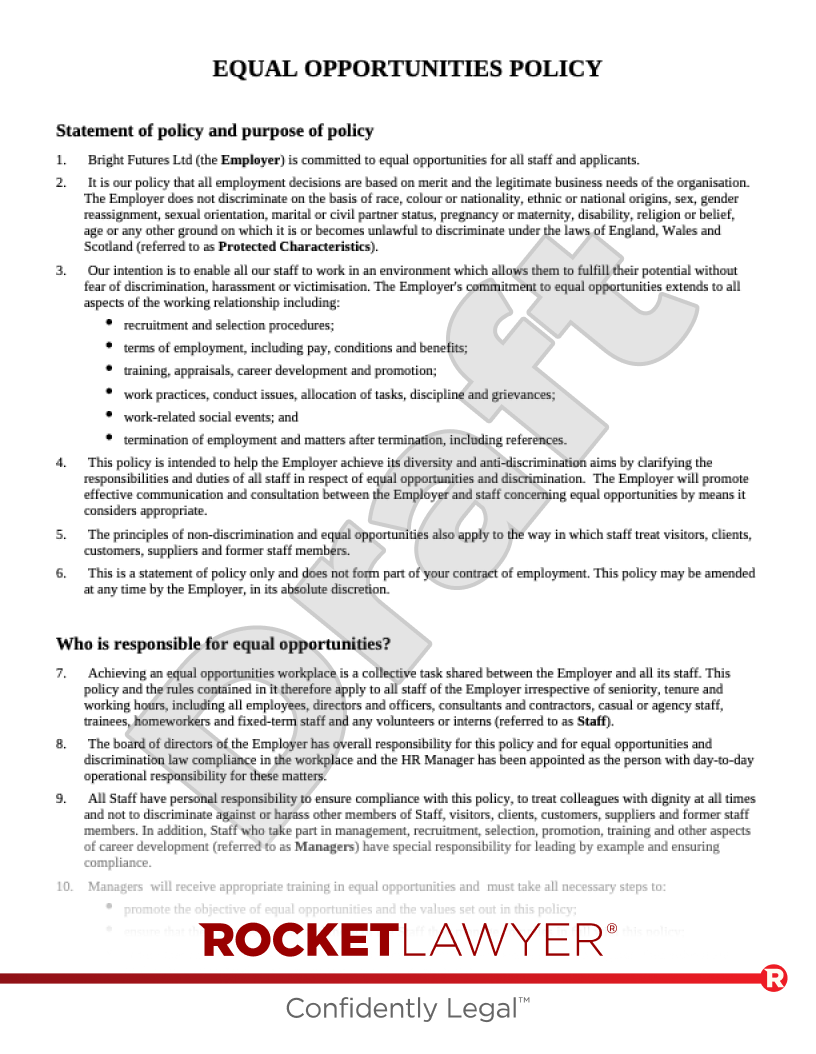What is retirement?
Retirement is the process of an employee withdrawing from their career and leaving the workforce. When an employee retires they leave employment and instead, live off other sources of income (eg income from rental properties), savings and pensions without actively working.
What is the retirement age?
In the UK, there is no set retirement age. Up until October 2011, the ‘default retirement age’ was 65, however, this no longer exists. As a result, there is no set retirement age and employers cannot actively plan for their employees to retire when they reach a certain age.
This means that it is generally down to employees to decide when they wish to retire. In choosing to retire, employees should consider when they can start withdrawing money from their pension. While this will depend on the terms of the specific pension scheme, most employees can start drawing their pension once they’re over the age of 55. For more information, see the Government’s guidance on Early retirement.
Employees should also bear in mind the State Pension Age. The State Pension Age is the earliest someone can receive their state pension and is currently 66.
What is the law on retirement?
Employers cannot compulsorily retire their employees at the age of 66 (ie the State Pension Age), meaning employees can keep working beyond 66 if they want or need to. An employer will be at risk of age discrimination if they force an employee to retire. However, there is an exception if the employer has a good reason why, ie they have a legitimate aim that they intend to meet by forcing the employee to retire (eg workforce planning or complying with an age limit set for a particular position by law). Plus, the means used to pursue the legitimate aim must be proportionate; that is, employers must go no further than is necessary to achieve it.
When dismissing employees, employers must follow a fair procedure and give enough notice. Otherwise, they could be at risk of unfair dismissal claims.
Employers should consider adopting a retirement policy to ensure that they follow a fair procedure. This is especially important if a fixed retirement age is in place. Ask a lawyer to have such a policy drafted.
Do employees need to tell their employers about their retirement plans?
Employers may ask employees about their retirement plans, however, if such discussions are held they must be held with all older employees on a routine basis and in good faith.
What do employers need to consider when employees continue to work after reaching the state pension age?
Where an employee continues to work after reaching the state pension age, employers need to consider a variety of things. These include, but are not limited to:
-
if an employee is incapable of carrying out their duties, the employer may terminate their employment. However, a fair procedure must be followed
-
some Employment contracts state that a person's employment automatically ends once they reach a specified age. If such a clause is included in an employee’s contract, their employment will end on the date specified. It is important to note, however, that employees cannot sign away their employment rights in their employment contracts. Should an employment contract end due to an employee's age, that employee will likely be able to bring a legal claim against their employer for age discrimination and unfair dismissal
-
ending an employment contract because an individual has reached a certain age is considered age discrimination. Compensation for claims of age discrimination is unlimited, meaning that if a claim is successful, the employer could end up paying a significant amount, especially if it has been difficult for an older employee to find alternative employment
-
employees that work after the state pension age no longer have to contribute to National Insurance. They can also begin claiming their state pension, as well as their workplace pension through their employer
Adopting a retirement policy helps employers ensure employee retirements are treated using a fair process. Get a bespoke retirement policy drafted.
Can an employee retire early due to ill health?
An employee can retire early if they are unable to work due to long-term sickness or disability. They will need to show that:
-
they are permanently unable to work due to their condition
-
there are no further medical treatments available
-
they have explored all reasonable adjustments (eg flexible working) that could enable a return to work
How does 'phased retirement' work?
Phased retirement refers to the use of different working arrangements to help people transition from full-time work to retirement. It enables employees to change their working arrangements while still receiving retirement benefits.
Phased retirement options vary depending on the nature of an employee's role and occupational pension scheme, and may include a reduced workload or reduced hours, with any pay decreases being supplemented by the employee receiving a portion of their pension entitlement.
Employers can really benefit from phased retirement, as it aids employee retention and can help to mitigate the disruption of any planned staff reductions. Further, phased retirement can help employees have a better standard of living later in life, as they're able to stay in the workforce and can have more control over when and how they retire.




